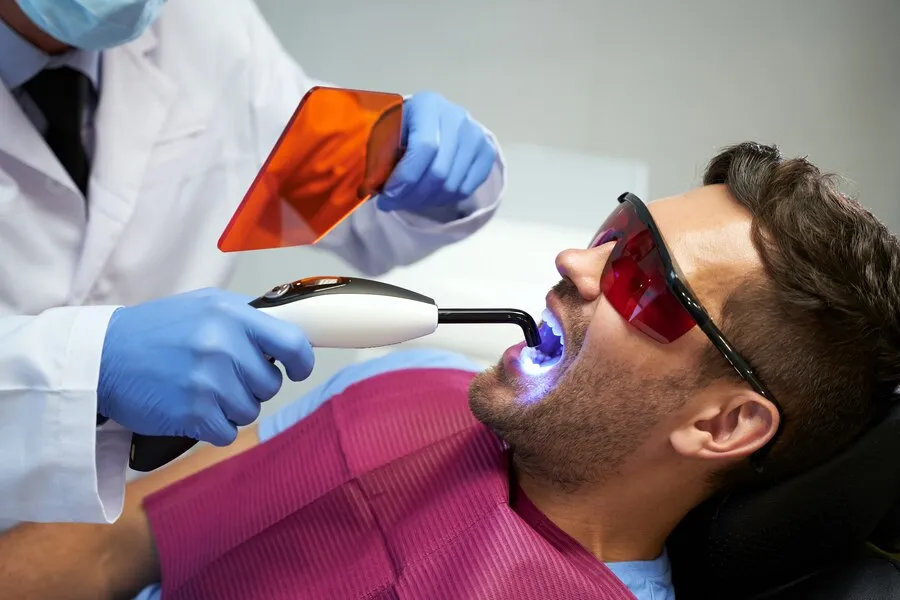Tooth extraction is a common dental procedure that many may need to undergo at some point. Removing a tooth can be a significant step toward better oral health, whether due to an impacted wisdom tooth, severe decay, or an injury. However, the cost of this procedure can vary widely depending on several factors, including the complexity of the case, the location of the dental practice, and the type of anesthesia required. In certain areas, patients might seek out pricing information specific to their locale, such as the price of tooth extraction west seneca in NY. It’s beneficial for patients to understand the factors contributing to the cost, enabling them to anticipate expenses and value the importance of preventive oral care.
This article aims to provide a comprehensive look at the factors contributing to the cost of a tooth extraction, the dental procedure itself, and why regular check-ups are a critical investment in oral health that could circumvent the need for such procedures.
Factors Influencing the Cost of a Tooth Extraction
The price of a tooth extraction can be affected by various elements, including the dentist’s expertise, the tooth’s position and condition, and the patient’s overall dental health. Extractions that require surgical intervention, such as the removal of impacted teeth, typically carry a higher cost due to the complexity and additional resources needed.
The Procedure of Tooth Extraction
Understanding the extraction procedure can help alleviate some of the anxiety around it. It begins with an assessment by a dental professional and is often followed by an X-ray to determine the best course of action. Anesthesia options are discussed to ensure the comfort of the patient, and once the procedure is underway, the dentist will remove the tooth using specialized instruments.
Preventive Measures to Avoid Extractions
Regular dental visits, cleanings, and proper home care can significantly reduce the likelihood of needing an extraction. Early detection and treatment of issues such as cavities or gum disease can preserve natural teeth, underscoring the value of consistent, preventive oral care.
Post-Extraction Care and Recovery
After a tooth has been removed, proper aftercare is crucial for healing and preventing complications such as infection or dry socket. This typically includes rest, limited physical activity, adherence to a soft food diet, and pain management and oral hygiene practices as your dentist recommends.
The Importance of Regular Dental Check-Ups
Patients can prevent various oral health problems and prolong the health of their teeth by scheduling routine examinations. During these appointments, prospective dental issues can be detected early and treated before extractions become required. Professional plaque and tartar cleaning is also possible.
Innovations in Dental Care and Alternative Treatments
The field of dentistry is constantly evolving, with new technologies and treatments that can serve as alternatives to extractions. Innovations such as laser cavity treatment and regenerative procedures are examples of how modern dentistry is changing the landscape and providing patients with additional options.
The Emotional and Physical Impact of Tooth Extractions
The prospect of losing a tooth can be emotionally taxing for many patients, and the physical impact of extraction on one’s oral structure cannot be ignored. Understanding these impacts can help patients prepare for and adapt to the changes that come with such a procedure.
Financial Assistance and Payment Plans for Dental Procedures
Although having dental work done can be quite expensive, many dentist offices assist patients in managing their costs by providing payment plans or collaborating with insurance carriers. Finding out what choices are available and doing your research can help reduce the cost burden of dental treatment.
Conclusion: The Value of a Healthy Smile
The state of your gums and teeth ultimately affects your general health in a significant way. The necessity for expensive and emotionally taxing operations like tooth extractions can be avoided by investing in preventative dental care. A beautiful smile and a better, happier life are supported by maintaining awareness and taking preventative measures regarding your dental health.
Many reasons why dental implants are the finest option for restoring teeth, discussing their features, advantages, and life-changing effects on patients.
The Remarkable Design of Dental Implants
Dental implants are expertly designed to mimic the appearance and functionality of real teeth. A titanium post, surgically secured into the jawbone and as a strong foundation, is the central component of every implant. Because of its biocompatibility, titanium is used in implants to facilitate osseointegration—fusing bone with the implant. This robust integration guarantees that the implant stays firmly in place by imitating the root of a real tooth and averting the jawbone degradation sometimes associated with tooth loss.
Unmatched Longevity and Strength
The remarkable lifetime of dental implants is one of its most persuasive benefits. Since they are made to survive for decades, implants frequently outlive other dental prostheses. They offer the strength required to endure the everyday rigors of chewing and biting, and they are resistant to decay. This resilience results in a tooth replacement that mimics a real tooth’s appearance and functionality, offering patients a dependable long-term alternative.
Preservation of Oral Health
Dental implants make a special contribution to the preservation of general oral health. Implants remain alone without changing the surrounding dentition, in contrast to dental bridges that necessitate the modification of neighboring teeth. Maintaining the integrity of a patient’s smile and averting more oral health issues depends on preserving natural teeth.
Superior Comfort and Convenience
When it comes to dental restorations, comfort is crucial. The pain and uneasiness that come with taking out dentures are eliminated with dental implants. Patients with implants may talk, eat, and go about their everyday lives without worrying about a prosthesis slipping or causing sores. It is impossible to overstate how much this ease and comfort add to and improve life.
A Boost to Self-Confidence
It’s not unusual for individuals with missing teeth to feel self-conscious about their appearance. Dental implants provide a compelling cosmetic solution, meticulously crafted and colored to match a person’s natural teeth. This harmonious blend enhances a patient’s smile and, by extension, their self-confidence. Being able to smile without reservation is a profound change that positively affects both personal and professional relationships.
The Simplicity of Maintenance
The simplicity of care associated with dental implants is one of their benefits. Dental implants may be maintained with normal brushing, flossing, and dental examinations, just like natural teeth. Dentures, on the other hand, need specific cleaning agents and maintenance procedures. This ease of use guarantees the longevity of the implant and removes obstacles to good dental hygiene.
Enhanced Nutritional Opportunities
Patients’ food options are unrestricted when they have dental implants. Because implants are durable, people can eat a broad range of foods, even ones that denture wearers might not tolerate—like crunchy or harsh dishes. This independence enhances not only the amount of nutrients consumed but also the enjoyment of eating, which is a significant aspect of life.
Tailored Treatment for Each Patient
Each patient gets a personalized treatment plan made to meet their unique requirements. Dental practitioners may now deliver precise implantation and a prosthesis that is indistinguishable from real teeth because of developments in imaging and diagnostic technologies. Thanks to our customized approach, patients are getting the finest care possible, according to their specific dental profiles.
Read More: Genital Warts Cauterization: A Comprehensive Guide to Treatment Options
Final Thought
Dental implants are the epitome of modern dentistry’s quest to provide effective and reliable solutions for tooth loss. From their ability to integrate with the natural bone to their contribution to a patient’s self-esteem, dental implants encompass an array of benefits that other tooth replacement options simply cannot match. As time progresses, we can confidently expect even greater innovations, ensuring that the domain of implant dentistry will continue to offer improved experiences and outcomes for patients around the globe.






